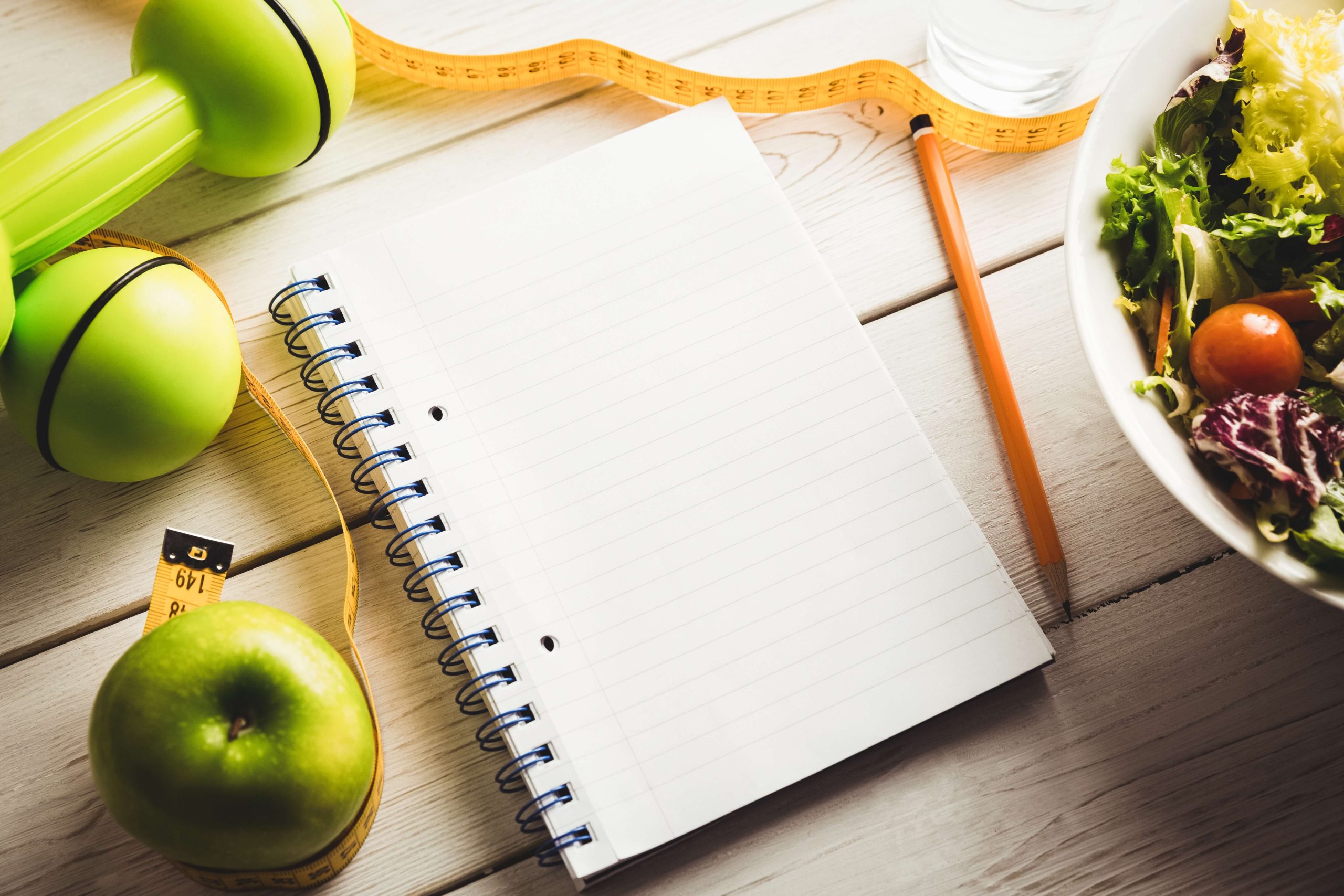What if you could increase your weight loss by just changing one habit? The simple act of keeping a food journal can encourage you to eat fewer calories — and therefore lose weight. How does keeping track of what you eat and drink in a food journal work this kind of magic?
Food journaling involves writing down everything you eat and drink. It also includes keeping track of portion sizes, when and where you ate, and how you feel after eating. A food journal can help you to build awareness of what, why, when and how much you eat. The goal is to help identify your eating habits…good and bad. You can use this information to figure out what works and what you need to change.
I am not a fan of counting calories, I find it boring and tedious…although it does have a place in certain situations. Here are some reasons why I think keeping a food journal is more important than just counting calories.
- Food Journals Make you More Mindful of What You are Eating. A lot of our eating habits are subconscious, we eat without really thinking. Keeping a food journal increases your awareness of what, how much, and why you are eating. Many people eat more than they realize. When you have to write down everything that goes in your mouth you become more aware of what you are consuming. This helps you cut down on mindless munching. Just by knowing that you’ll be recording your actions is enough to encourage most people to make better choices.
- Food Journals Identify Situations Where You Might Binge. Food journals can identify triggers that cause you to want to overeat. Eating can be emotional and people overeat for many different reasons. You may be able to identify stressful situations that are controlling your food choices. Look for any connections between your emotions and your food choices. Knowing what your triggers are can help you avoid stress related eating pitfalls.
- Food Journaling Helps You Identify Habits. If you record the time of day that you eat, your emotions, and other activities that surround your eating, then your food journal should help you identify habits in your eating patterns. With an emphasis on habits, food journaling continues to have value even after you stop doing it. The information that you record can help you identify habits you can change that will help you make better choices.
Record where you ate your food and look at how often you are eating in appropriate settings. Food should be consumed in a relaxing environment that is free of distractions. Eating in front of the TV or in the car actually makes us eat much more.
A food journal will help you look at how far apart your snacks and meals are. When your meals are spread out too far, you can create fluctuations in your blood sugar and be more likely to overeat at your next meal. Eating five smaller meals a day can help you avoid overeating.
- Food Journals Provide an Objective Record. Our minds we will trick ourselves into believing we eat healthier than we really do. When you keep a food journal, it takes out the guess work. You will know exactly what you are eating and that objective record can help inspire change. Remember to carry a pen and paper with you at all times to record what you eat and drink. Don’t rely on your memory, because at the end of the day, chances are good that you will forget something. You can’t forget about that sample you took at a grocery store, or when you stopped to chat with your co-worker and grabbed a handful of goodies from her desk – everything that goes in your mouth gets written down.
- If You Saw a Dietitian, You Would Keep a Food Journal. If you go see a dietitian, one of the first things you will be assigned to do is to keep a food journal. This helps the dietitian analyze your eating habits and make suggestions on how to improve them. If you are doing this on your own, you’ll be analyzing your own eating habits. You don’t need your own personal dietitian to start a food journal, all you need is the commitment to write down everything you put in your mouth.
While I’m really passionate about eating healthy, my eating habits are not always great. Keeping a food journal helps me stay on track and aware of what I am eating. I don’t have the patience to keep a food journal for more than a week at a time, but I do like to track my food intake several times a year. A few days is better than nothing. Maybe just a couple days during the week and the weekend could be helpful for you. When I keep track of what I’m actually eating it can be very eye opening. I encourage you to give it a try, even if it is only for a couple of days.

